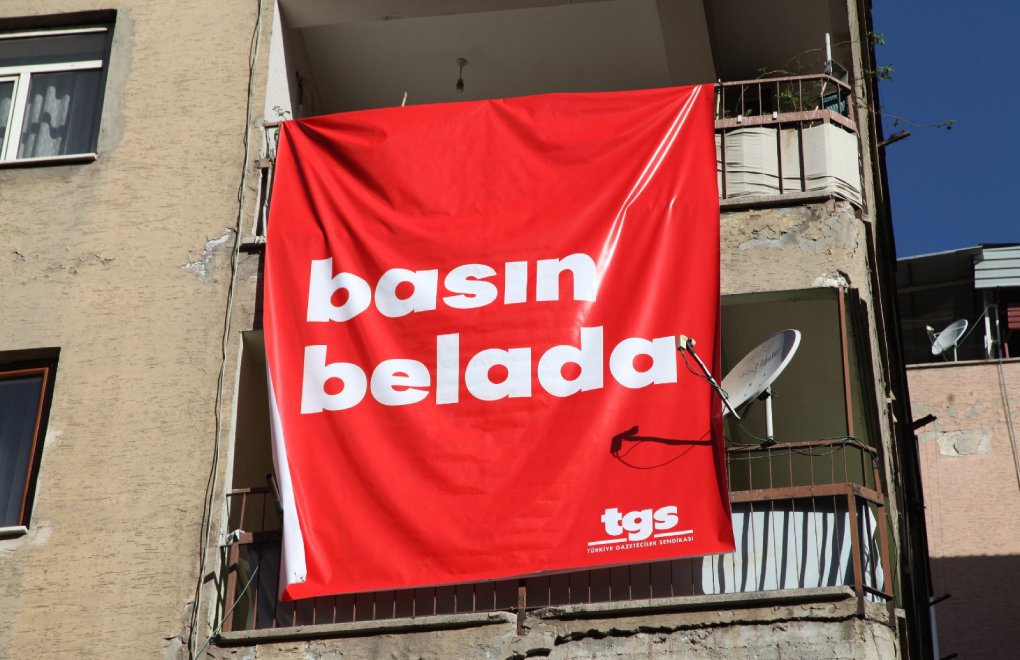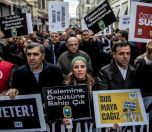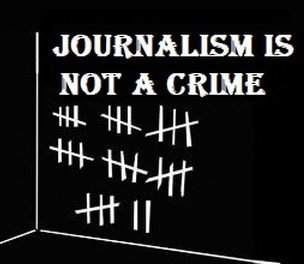Click to read the article in Turkish
On the occasion of May 3 World Press Freedom Day, the Journalists' Union of Turkey (TGS) has launched a campaign of "Basın Belada" (The press is in trouble) in an attempt to raise publicity and concerns about the problems and hardships faced by journalists in Turkey.
Making a word play with "basın" (press) and "başın belada" (You are in trouble), the social media campaign has also hit the billboards across the country, primarily in İstanbul and the capital city of Ankara.
Asking journalists to share the hardships and difficulties that they face under the hashtag #basınbelada, the TGS has also released a statement on its website and said, "If the press is in trouble, democracy is suspended. If the press is in trouble, everyone is in trouble."
"The media is not free in Turkey. Journalists are censored, sacked and imprisoned, which makes the society lose its right to obtain information and our country lose its democracy," the union has said further.
On this occasion, the TGS has also shared its annual press freedom report covering the incidents that took place between April 1, 2020 and April 1, 2021, saying, "Violations of journalists' human rights, restrictions on reporting and oppression of media outlets in Turkey continue. Unfortunately, it's difficult to speak of progress on May 3 World Press Freedom Day."
Some highlights from the report are as follows:
'43 journalists currently jailed in Turkey'
- Turkey's Social Security Institution (SGK) reported 23,306 journalists in the country.
- Some 27.7-percent of journalism school alumni in Turkey suffer from unemployment, a rate almost double the national 13.2 percent, according to data from the Turkish Statistical Institute (TÜİK). The real unemployment rate among journalists, including those who work without social security, would land somewhere between 35 and 40 percent.
- Some 43 people are imprisoned in Turkey for their news reporting activities.
- Imprisoned journalists experience human rights violations disguised under "COVID-19 restrictions." They are barred from communicating with their families, socializing, receiving letters and accessing healthcare services, and are subject to poor sanitary conditions.
- "Membership to an armed organization" and "conducting propaganda for a terrorist organization" are the charges most commonly directed at journalists.
'274 journalists put on trial in a year'
In the last year...
- Some 57 journalists spent a collective 144 days in police detention. Six journalists were battered in police custody.
- Turkish prosecution launched investigations into some 101 journalists.
- A total of 274 journalists were tried in 128 different cases in Turkish courts.
- Turkish prosecution sentenced journalists to a total of 226 years, eight months and 25 days in prison.
- TGS spoke with 35 journalists in 12 different prisons to report human rights violations.
- Some 44 journalists were physically assaulted in Turkey, while some 23 were verbally threatened.
- Access bans were issued for 62 news outlets for 1,411 different pieces news content, while prosecution ruled for 13 news stories to be removed from the Internet.
- Turkey's Radio and Television Supreme Council (RTÜK) issued a total of 7,488,851 Turkish Liras in monetary fines, and ruled for 41 broadcast arrests.
- Turkish prosecution cancelled 892 press cards in 2019, and some 322 in 2020. Meanwhile, 15,104 journalists hold a Presidential Press Card, the Communications Directorate reported to TGS.
- Turkey's Press Advertisement Agency (BİK) blocked media outlets' advertisement revenue for a total of 212 days: 90 days for Cumhuriyet daily, 63 days for Evrensel, 39 for BirGün and 20 for Sözcü and Korkusuz.
(HA/SD)







